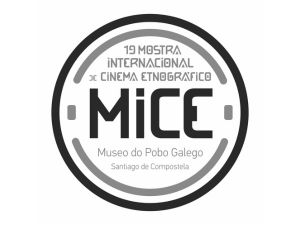February 15, 2023
MICE – International Ethnographic Film Festival, promoted by the Museum of Galician People, turns 18 in 2023 – the legal age of majority in Spain. The festival, which will take place from March 15 to March 21, opens the season of film festivals and showcases in Galicia.
MICE’s 18th edition (the seventh as a full-fledged international festival with competitive sections) will focus on rururbanity. This term was coined to describe the continuous or hybrid spaces that emerged after the urbanization of rural areas. These spaces are inhabited by conflict and divergence, but they also host new ways of challenging, thinking, and socializing the peoples’ heritage and cultural practices. The rururban, approached with the tools of ethnographic cinema and visual anthropology, will be the central theme of MICE’s 2023 edition: the competitive sections (the two Official Selections: International and Galician), the parallel sections (Trazas, Lindes, and Impropias), and the complementary program of events, which includes training activities with different itineraries, for school students and professionals in the audiovisual industry.
MICE’s promotional image
The image of the promotional poster of MICE’s 2023 edition, which also explores the concept of rururbanity, is signed by the young Galician creator Coral Piñeiro, who also filmed the promotional video.
Workshops
MICE 2023’s program of parallel activities includes a training seminar specially designed for professionals in the film industry. This year, it will be developed in collaboration with LAAV (a laboratory for experimental audiovisual anthropology). Chus Domínguez and Belén Sola will conduct the 12-hour workshop “Who owns the story? Collaborative audiovisual practices and audiovisual anthropology”, which is set to be held from March 20 to March 21. People willing to participate in the workshop are welcome to send their application by e-mail to mice@museodopobo.gal from 6 to 15 March.


MICE Petís
MICE offers MICE Petís, a program specially designed for school students. Coordinated by DEAC (the department for education and cultural dissemination of the Museum of Galician People), this year’s activities will be developed in collaboration with emerging Galician filmmaker Bruno Arias. MICE Petís relies on documentary and non-fiction filming techniques to bring us closer to the youth’s perspective on Galician culture and traditions. For this 18th edition, MICE is implementing a pilot program collaborating with students from three Galician high schools and young members of Santiago de Compostela’s sociocultural center Aurelio Aguirre. The participating students will create an ethnographic short film from the concept to the post-production phase. The resulting short films will be screened on March 31 at the Museum of Galician People in Santiago de Compostela.
For another year, MICE will offer online sessions for educational institutions wishing to collaborate with the festival. From March 14 till the end of the school year, the collaborating schools and high schools will be able to access a selection of ethnographic pieces curated among all the films featured in all 18 editions of the festival. Educational institutions willing to participate are welcome to send their applications to servizosdeac@museodopobo.gal.
A sustainable festival
In accordance with the Sustainable Development Goals of 2021 and the 2030 Agenda for Sustainable Development, MICE renews its commitment to accessibility, environmental sustainability, and gender equality. For another year, MICE’s organization comprises a majority of women professionals in all its departments: from the programmers and producers –led by the festival’s director Ana Estévez Lavandeira– to the featured filmmakers, which a whole section (Impropias) exclusively devoted to woman filmmakers.

MICE’s 18th edition is organized by the Museum of Galician People with the support of the Concello de Santiago de Compostela (City Council of Santiago de Compostela), Deputación da Coruña (the Provincial Council of A Coruña), and Xunta de Galicia (Regional Government of Galicia).



